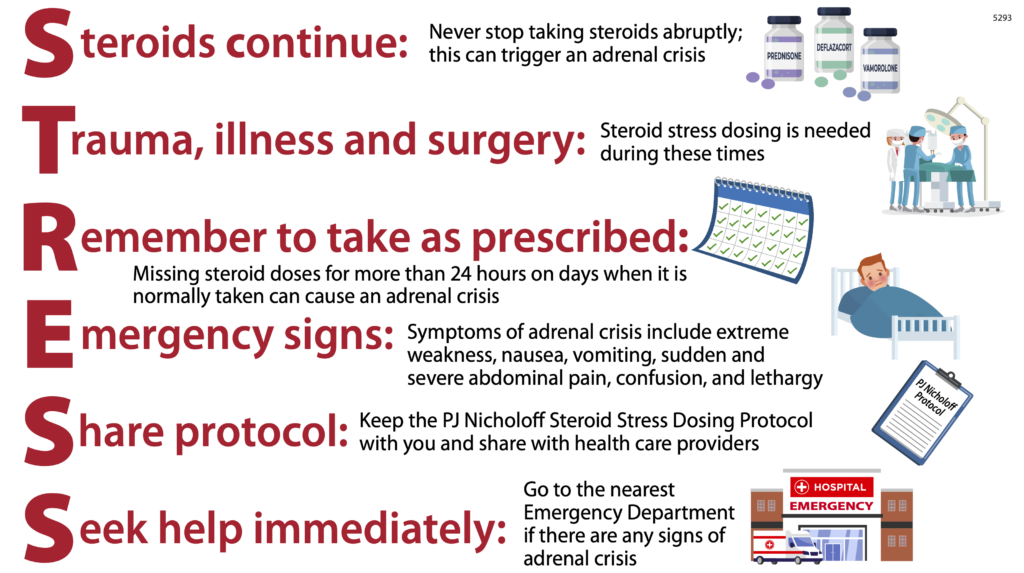What should I do if I miss a steroid dose(s)?
Missing doses of daily steroids for more than 24 hours for any reason can also cause a life-threatening adrenal crisis. If you or your child goes to the emergency room or is hospitalized for any reason, it is extremely important you notify the providers that you are on steroids and if you have missed a dose. Additionally, it is important to be mindful of conditions that may impact the amount of steroid being absorbed, such as vomiting for more than 24 hours (food poisoning, stomach bug, etc.).
If oral corticosteroids are missed on days when they are normally given for more than 24 hours, IV doses should be given. Be sure to share the PJ Nicholoff Steroid Protocol (download) with your doctor and create a plan together about what to do in case of a missed dose.
A stress dose is an extra dose of steroids that helps your body to deal with significant stressors. Stresses on the body can be mild, moderate, or severe. The table below, from the PJ Nicholoff Steroid Protocol, will help you to recognize which stressors might require a stress dose of steroids. When in doubt, it is generally safer to give a stress dose (which might not be needed) than to not give a stress dose (which really was needed).
Corticosteroid stress doses
What should I do if I suspect an adrenal crisis?
Always go to the emergency room if you suspect an adrenal crisis — this is a life-threatening condition. It is important to know the risk factors and symptoms of life-threatening adrenal crisis. Keep the PJ Nicholoff Steroid Protocol (download) available to you, and your medical providers, in case of a medical emergency or admission. Alert your neuromuscular team in the event of a medical emergency or admission to help ensure that your/your child’s comprehensive care continues.
Symptoms of adrenal crisis can include any of the following:
- Abdominal pain
- Shock
- Confusion or disorientation
- Dehydration
- Dizziness or light-headedness
- Fatigue
- Flank pain
- Headache
- High fever
- Loss of appetite
- Loss of consciousness
- Low blood pressure
- Low blood sugar
- Nausea
- Profound weakness
- Rapid heart rate
- Rapid respiratory rate (see tachypnea)
- Slow, sluggish movement
- Unusual and excessive sweating on face or palms
- Vomiting
Additional Resources:






 FAQ: Choosing a Steroid Drug, Dose, and Regimen
FAQ: Choosing a Steroid Drug, Dose, and Regimen

